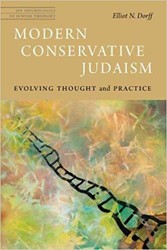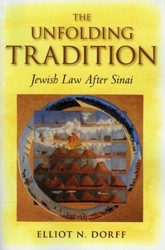Conservative Judaism is often criticized these days for not having a distinct voice. Rabbinic leaders are described as out of touch with increasingly less-observant members. Synagogue participants are criticized as nothing more than spiritual “consumers” looking for à la carte moments of personal meaning. Against this backdrop comes The Observant Life, which is quite simply the most important work the Conservative rabbinate has produced in a generation.
The Observant Life, published by the movement’s Rabbinical Assembly, is a confident, unapologetic work that reaches past Jewish ritual into every area of contemporary life. The contributors represent not only scholars from the movement’s seminaries, but the next generation of inspiring rabbis. The book is divided into three overarching sections, keyed to the famous words of the prophet Micah: “Acting Justly,” “Deeds of Kindness,” “Walking Humbly with God.” This rubric itself announces the editors’ and authors’ view that a Conservative approach speaks universally — to issues of society and the world — and to Jews who do and do not start with the traditional language of halacha (Judaism as law).
Strikingly, the book opens with the section on “walking humbly.” The editors include there not only prayer and ritual, but also personal integrity, modesty and personal appearance, charitable giving, and the synagogue as a business. Spirituality, so to speak, is not in this book a narrow category. In the other sections, the contributors tackle the entire range of worldly concerns. There are essays on business ethics, citizenship, gossip, taxation, military service, and marriage. There is no area of life, even controversial ones, hidden from discussion. So the rabbis address sex outside of marriage and same-sex marriage, and the place of individuals with disabilities in Jewish communal and spiritual life.
In his introduction, editor Martin Cohen states that Torah comes not only to speak clearly, but also to seep into the chaotic and messy parts of life, where realities and answers are not clear. The Observant Life fulfills his promise. It shows Conservative Judaism as an approach to life that is rooted in traditional wisdom and unafraid to use its voice to teach about all aspects of the good life in the twenty-first century.
Join a community of readers who are committed to Jewish stories
Sign up for JBC’s Nu Reads, a curated selection of Jewish books delivered straight to your door!





